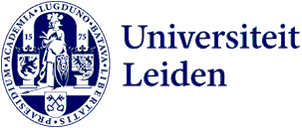
'This is the very best course there is'
Martina Vijver has been nominated as Teacher of the Year of the Faculty of Science. She gets this nomination for the course Ecotoxicology she taught in 2022. The 52 students who took the course were hugely enthusiastic, as can be read in their positive reviews. What is so great about this course then? Martina is happy to explain.

‘The format of this course is completely new. We organised a hackathon. In this, you work together to solve a complex problem. We started investigating a chemical that is soon due for re-evaluation. The Board for the Authorisation of Plant Protection Products and Biocides (Ctgb) is still in doubt about further market authorisation. We looked at what effects that substance has on plants and animals.’
Getting used to a different course
‘For the students, it took some time to get used to this new format. They had to let go of everything they had learned before and figure out for themselves what they wanted to measure. "Will we no longer have a lecture then?", was the worry for a while and "How do you know if you are doing something right or wrong?". But that soon turned into enthusiasm. Some started looking at the burrowing behaviour of mosquito larvae, others measured the heart rate of water fleas and some were looking at whether the pigmentation of water fleas became different after exposure to the compound.’
‘A heart rate monitor for a water flea simply doesn't exist.’
Sewing mosquito nets for days in a row
‘They had to collect the animals from nature themselves. And the measuring equipment? They had to invent and build that as well, as a heart rate monitor for water fleas simply doesn’t exist. And that resulted in very creative ideas, such as using an iPhone to calculate the burrowing speed of mosquito larvae. That way, as a student, you immediately experience the day-to-day reality of doing research. As a researcher, I sometimes spent days and days in my room sewing mosquito nets. That’s how it goes.’
‘In the end, the students were very enthusiastic. They realised that this was a real question from practice, and not some case we came up with for a practical. This was the real thing.’
How teaching became a group effort
Eventually, our Ecotox team wrote a scientific paper on the matter. That was a first, also for me. We even included student evaluations. We had a look at the effects on students of this form of teaching. And on the effects on the teachers as well. And does it benefit the Ctgb? I think this is interesting information for many colleagues and I expect the article to be quoted often.’
The nice thing is that our entire research group helped with this subject. Several PhD candidates helped with the preparations, some gave a lecture and colleague Sofie is now the first author of the paper. And our new analyst Giovanni straight away had to dilute the chemical in different concentrations on his first working day under the watchful eye of 52 students. He has performed magnificently under this pressure; he now has a permanent contract with us.
‘Can I really do it, teaching?’
The Achilles' heel of Marina Vijver
‘This nomination for Teacher of the Year is fantastic. Because, when it comes to teaching, I can be extremely insecure. That’s also because students can be ruthlessly honest and harsh. And I sometimes find that criticism difficult. Therefore, this nomination is very good for this Achilles’ heel of mine, it is a huge boost.
How badly do I want to win? That’s a question of conscience. I am fanatical, though. When I‘m on the tennis court, I also want to win. Although I can accept it just fine if I don’t. But looking at it objectively, this is the very best course there is. I mean that from the bottom of my heart.’
